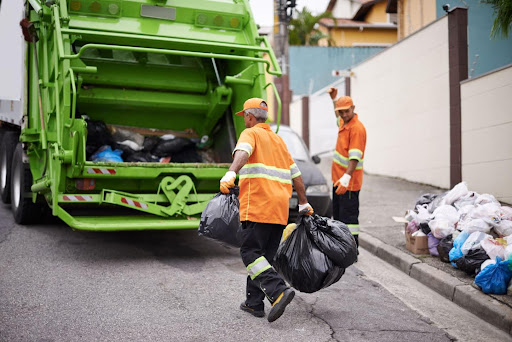Waste collection is crucial to preserving cleanliness and hygiene in the places we live as we go about our everyday business. If necessary measures aren’t taken, this common action could expose us to a variety of germs and bacteria which could be harmful to our wellbeing. Protecting oneself from pathogens throughout rubbish collection is crucial, whether you’re handling domestic waste or taking part in community cleanup initiatives. Here’s a detailed guide on how to successfully protect yourself. To speed up the waste collection process you can get in touch with experts at Mancunian Skip Hire, they can prove to be of great help.
Wear Appropriate Protective Clothing:
Donning the appropriate protective clothing throughout garbage pickup is essential for preventing the spread of pathogens. Put on a pair of strong gloves produced of materials that will last, such as rubber, nitrile, or latex. The gloves serve as an intermediary between your skin and any hazardous materials found in garbage. To further reduce skin exposure, think about donning long sleeves, trousers and closed-toe shoes.
Make Use Of Face Masks:
Face masks have become increasingly important, particularly in the context of garbage collection. Wearing a mask becomes essential when garbage has strong odours or contains small particles which might prove dangerous if ingested. The likelihood of respiratory infections may be decreased by wearing a well-fitting mask, particularly an N95 or surgical mask, which may protect against harmful fumes and airborne particles.
Preserve Hand Hygiene:
Wash your hands well both before and after managing garbage. Make sure to thoroughly wash all hand surfaces, especially the spaces among fingers and under nails, by using soap and water for at least 20 seconds. Employ an alcohol-based hand sanitiser with at least 60% alcohol to clean your hands if water isn’t easily accessible.
Sort Waste Correctly:
Sorting waste correctly reduces exposure to hazardous materials and promotes recycling activities. Put recyclable, hazardous, & biodegradable garbage in different containers. This lowers the possibility of infection and makes the disposal and handling processes safer.
Handle Waste Carefully:
Exercise caution whenever gathering waste. Steer clear of items that protrude or are pointy. To pick up trash or garbage, use the proper instruments, such as grippers or tongs. When handling shattered glass, needles, or other potentially harmful materials, exercise caution and rid of them in safe, puncture-proof containers.
Disinfect Equipment And Containers:
Clean and disinfect trash-collecting instruments and containers regularly to avoid the growth of dangerous microorganisms. Reusable gear such as bins and garbage cans should be sanitised after every use using an EPA-approved disinfectant or a bleach solution. This method keeps the surroundings clean and reduces the chance of cross-contamination.
Dispose Of Personal Protective Equipment (PPE) Properly:
Correctly dispose of worn gloves, masks, and other kinds of personal protective equipment (PPE) after finishing waste collection tasks. To avoid any possibility of contamination, place them in tightly sealed bags or containers. If at all feasible, dispose of PPE according to local regulations, particularly if it has come into contact with dangerous substances.
Observe Local Laws And Ordinances:
Respect the rules and guidelines that the waste management organisations have established locally. Learn about the regulations that apply to the collection, management, and disposal of garbage in your community. The purpose of these regulations is to protect the safety and health of the public from the risks posed by inappropriate waste management techniques.
Get Vaccinated And Have Regular Check-Ups:
Think about getting immunized against diseases that could be linked to garbage exposure, such as hepatitis, tetanus, or other pertinent immunizations advised by medical experts. Plan routine medical examinations as well to keep an eye out for any possible health issues brought on by garbage exposure.
Educate And Raise Awareness:
Assist those engaged in rubbish collection efforts by imparting the best techniques and expertise. A safer atmosphere can be produced for all parties concerned by teaching volunteers, garbage disposal staff, and other members of the community about the value of wearing appropriate protection against pathogens.
Give It A Thorough Wash
Towels, house linens and pants should be laundered at 40°C or 60°C. Whenever carrying soiled clothes, avoid hugging them to your face or chest. Rather, use a washing basket to lower the risk of infection. Wash your clothing frequently to prevent the spread of germs, which may quickly grow in unclean clothes.
Final Words
For the wellness of everyone as well as the health of the community, it is imperative to protect against infections throughout waste collection. People can drastically lower their chance of coming into contact with dangerous germs by implementing these preventative steps and practising proper waste management. Always keep in mind that your activities safeguard the natural world and make it a cleaner, healthier place for everyone.







